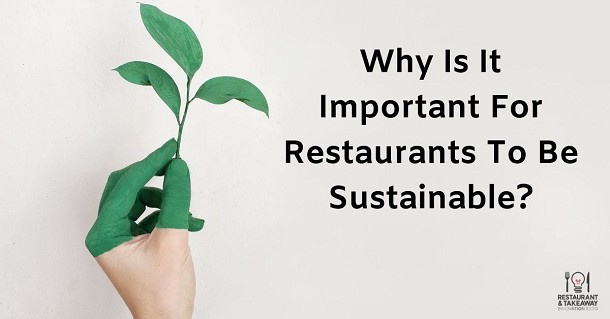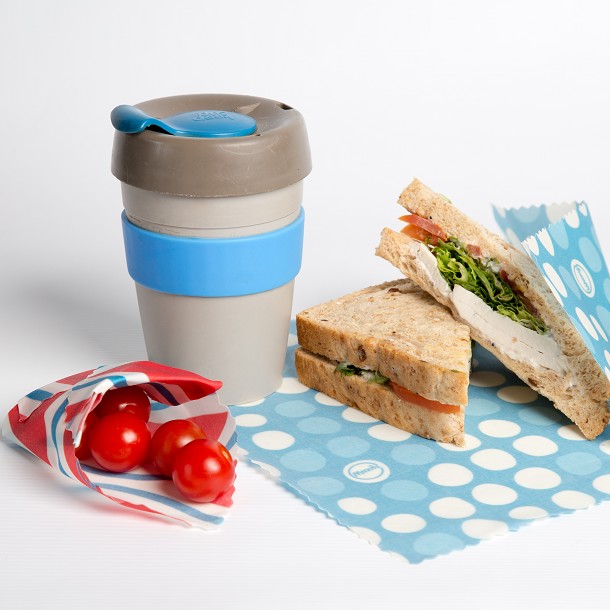Wrap and Roll to Join the Reuse Revolution
In the last year, 82% of the British population has begun actively reducing their plastic footprint, according to a YouGov survey.
As mainstream concerns about plastic misuse gather pace, innovators believe food service businesses are uniquely positioned to promote ‘wrap-around’ solutions, capable of highlighting green brand credentials, increasing consumer awareness and in turn, generating impactful shifts towards conscious consumerism.
The branded KeepCup® was first to create a stir in the industry, and now reusables are slowly but surely replacing the single-use coffee cup. However, according to Catriona Mann, founder of BPlasticfree, the time has come for a complete roll-out of the reuse revolution. ‘Consumers are coming full circle. We’re seeing a return to common-sense waste reduction; returnable milk bottles, refills, paper bags. And, outside the home, the consumer appetite for change is pushing food-service innovators beyond reusable cups and paper straws, towards eco-proofing the whole dining experience.’
‘I bought my first travel mug in Australia more than a decade ago,’ Catriona says. ‘Some say I must have been ahead of the curve but I’m no eco-warrior. I just saw a simple, smart idea. And, I still have the cup.’ Last year, when her 21-year career in Commercial Management at John Lewis ran its course, Catriona returned to the Southern Hemisphere, this time finding inspiration for her product, Waxyz, in New Zealand. ‘I would walk into cafes, takeaways, shops. And reusable food wraps were everywhere. Again – so smart and simple.’
Back in Scotland, mining her wealth of branding and consumer experience, Catriona set her sights on creating a waxed wrap for use in both the home and food service industry.
Crucially for Catriona - winner of a Scottish Edge Wildcard Award – the unique strategy must build in scalability and high marketplace visibility. ‘Given the enormity of our environmental challenges, reaching as many businesses and consumers as possible is what it takes to affect meaningful change.’
The implementation of reusable food wrap in homes and catering businesses can help to reduce the 1.2 billion meters of throw-away cling film used in Britain each year – enough to wrap around the world 30 times – which often goes straight to landfill or ends up in the ocean.
‘Living on the coast, I’m acutely aware of the issues. I see discarded packaging wash up on beaches every day. With support from Business Gateway Fife and funding from Fife Council’s Trade Development Programme, I’ve been afforded the opportunity to tackle the issue head on. And, while recycling has a place, research shows investment in reusables should be our first port of call.’
Is your food service brand seeking ways to join the reuse revolution? Here are Catriona’s Top 3 Take Aways:
- Incentivise consumers to buy and bring back your branded travel mug, by offering exclusive loyalty cards or discounts.
- Rise above ‘greenwash’ cynicism; reinforce your brand’s eco-credentials by stocking reusable, branded utensils too.
- Maximise awareness of your eco brand and enhance the consumer experience with branded, reusable food wraps for take-out sandwiches and delicatessen. Win over the growing vegan market by choosing materials that align with their values.
Meanwhile, as society becomes increasingly aware of the apparently insurmountable challenges of plastic waste – and the limitations of recycling – Catriona envisages a bright green future for branded reusables.
‘People are ready for a wrap-and-roll revolution. Soon, regulars arriving at their favourite eatery with ‘keep-collection’ in hand - bamboo cup, foldaway utensils and waxed food wrap – will be synonymous with food to go culture. After all, a meal that doesn’t cost the earth is always an appetising thought.’
Learn more at bplasticfree.com
Get in touch:
catriona@bplasticfree.com
07789545136
NEXT READ: Why Is It Important For Restaurants To Be Sustainable?



